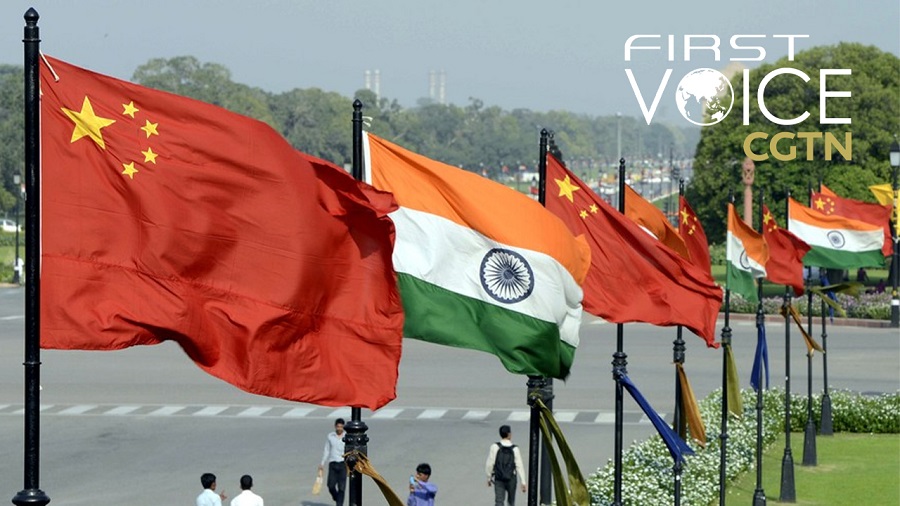India should recall 1962 war before further provocations

Editor’s note: CGTN’s First Voice provides instant commentary on breaking stories. The daily column clarifies emerging issues and better defines the news agenda, offering a Chinese perspective on the latest global events.
China, 2020 September 1, Tuesday(CGTN)
Despite months of diplomatic efforts, the Indian side has again stirred up tensions at the border area with China. In disregard of the consensus reached in previous negotiations, the Indian troops illegally trespassed the Line of Actual Control (LAC) at the Galwan Valley region, Chinese military spokesperson Zhang Shuili said on Monday.
From the 1962 armed conflicts to the Doklam standoff in 2017, the two nuclear-armed neighbors have been mired in border disputes for decades. It’s true no border has been officially negotiated between the two sides in the Himalayas, but the 4,057-kilometer-long LAC established in the 1962 truce means the no-border status won’t necessarily lead to physical conflicts. New Delhi’s aggressive border policy is to blame for repeated skirmishes in the region.
Ostensibly agreeing on the LAC, the Indian government has never ceased its attempts in nibbling away at China’s territory, hoping to push the LAC forward. Governmental reshuffles in the past decades have never changed New Delhi’s aggressive border policy. The country is playing the same old game again on the August 31 clash: making promises at the negotiating table and then cross the LAC and assault Chinese soldiers.
The South Asian nation naively believes that an aggressive border policy could help in its territorial expansion, and China, facing challenges in its exterior environment, dare not deteriorate ties with it and thus has no other choice but to accept the “established fact.”
China has reiterated its intolerance on any provocations of its national interests. The country will never give up any inch of its territory. Any challenge on China’s national sovereignty will for sure invite a fight back. Beijing has exerted tremendous restraints on the border issue, but New Delhi’s repeated provocations mean physical conflicts are inevitable.
The Indian side has already suffered huge losses from aggressive border policy. The country’s casualties in the 1962 border war were multiple times that of China. The large-scale brawl on June 15 has also incurred heavier losses to India than to China. But still, New Delhi cannot help playing the fire, with Indian troops carrying out a fresh round of provocations against their Chinese counterparts this week.
India’s aggressive border policy is putting not only its domestic interests, but also the Sino-Indian relationship and regional stability at risk. As the largest two populous nations in Asia, China and India are mutually dependent on the economic front. China was India’s second-largest trading partner in 2018-19. According to Invest India, India’s imports from China jumped 45 times to 70 billion U.S. dollars in 2018-19 since 2000. Chinese companies are also playing a dominant role in India’s smartphone market, with four out of top five smartphone makers in the country being Chinese.
A military conflict between the two neighbors could halt their economic and trade cooperation. In the era of global integration, this will only bring a multiple-loss result that no side is happy to see. Beijing has been repeatedly calling for New Delhi to meet it halfway and fully implement the consensus reached in previous negotiations.
India has already suffered from its aggressive border policy and should learn a lesson from past mistakes. Miscalculations on China’s determination in safeguarding national sovereignty would lead India to shooting itself in the foot. This is well-proven in the country’s previous experiences of provocative acts in the border area.










